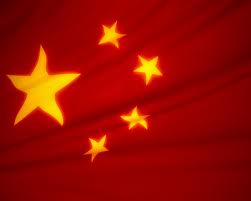Good software news from China

Good software news from China
U.S. Commerce Secretary John Bryson and U.S. Trade Representative Ron Kirk, together with Chinese Vice Premier Wang Qishan, co-chaired the 22nd Joint Commission on Commerce and Trade (JCCT) in Chengdu, China on November 20-21, 2011. Senior Chinese officials from 23 ministries and agencies also attended.
Below you will find some interesting observations and trends which highlight the challenges and importance of the Chinese software and technology market.
FIGHTING THE USE OF COUNTERFEIT SOFTWARE IN CHINA
In 2009, the commercial value of unlicensed software marketed in China exceeded $7.5 billion. This is roughly equivalent to 50% of the German software market in 2011.
To remedy software piracy China has established a State Council-level leadership structure, headed by Vice Premier Wang Qishan, to lead and coordinate intellectual property rights (IPR) enforcement across China. Through the establishment of this mechanism, China will enhance its ability to crack down on IPR infringement by making permanent the leadership structure under the recent Special IPR Campaign.
China, under the leadership of Vice Premier and Member of the State Council, Wang Qishan, will continue to take measures to ensure that governments at all levels use only legitimate software, ensuring that all the types of software used by government agencies are licensed. China has requested government agencies at all levels to bring software into state asset management systems, and will increase resources devoted to conducting audits and inspections, and will publish the auditing results as required by China’s law to ensure that all types of software used by government agencies are being accurately accounted for. To promote efficiency and accuracy in these audits and inspections, government agencies will further improve management of their software assets, including by the use of technical means.
By the middle of 2012, Vice Premier and Member of the State Council Wang Qishan committed that the provincial legalization program for all the 31 provincial entities will be completed, and by 2013, the software legalization program for the municipal and county level governments will also be completed.
In addition, China will further promote the use of licensed software in enterprises and conduct enterprise software management pilot projects and publish progress reports about these projects.
China and the United States will strengthen engagement on the implementation of software legalization in both government and enterprises.
STRATEGIC, NEWLY EMERGING INDUSTRIES

China plans to invest $1.5 trillion in technology sectors in the next five years.
China plans to invest $1.5 trillion in these sectors in the next five years:
China assured the United States that it will provide a fair and level playing field for all companies, including U.S. companies, in China’s strategic, newly emerging industries, including high-end equipment manufacturing, energy-saving and environmentally-friendly technologies, biotechnologies, new generation information technologies, alternative energy, advanced materials and new energy vehicles.
TRAVEL AND TOURISM
This may not be related to software, but the numbers are so fascinating that I decided to include them as a final note.
Every $100,000 spent by international travelers to the United States supports one American job. Since the initiation of travel under the Memorandum of Understanding in June 2008, the United States has received a total export value of $13 billion from Chinese travelers.
Spending by Chinese visitors is expected to grow 232 percent to $16.6 billion by 2016, moving up from the seventh largest source of tourism for the U.S. market in 2010 to the third in 2016.
China and the United States agreed to expand the Memorandum of Understanding opening the market for the sale of packaged leisure travel from China to the United States to three additional provinces – Henan, Jiangxi and Guizhou – for a total of 27.
CHINA & EUROPE
A similar [slider title=”meeting”] within the High Level Economic and Trade Dialogue (HED) framework. The fist HED meeting was held in April 2008.[/slider] was held in Beijing on 20-21 December 2010 between top Chinese government officials and members of the European Commission.
Sources: US Department of Commerce and The European Commission








